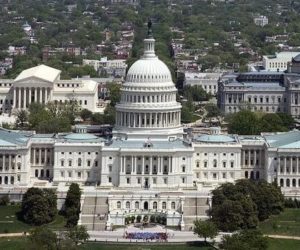David Cameron, who has served as Prime Minister for the United Kingdom since 2010, won another term back in May 2015. Among his campaign promises was letting the people of the UK decide, in 2017, whether they want to retain membership in the European Union. Should voters choose “No”, a UK exit (now being referred to as the “Brexit”) could very well have lasting consequences for much of the Western world.
It’s currently thought that a majority of UK citizens would favor splitting with the EU, but with this consequential vote so far away, it’s anyone’s guess what the outcome might be.
Below are five of the most significant negative effects that the Brexit might have if it comes to pass next year.
1) National Economies Would Incur Heavy Losses
As part of the European Union, the UK enjoys a strong and mutually beneficial trading relationship with the other 28 member nations. After the Brexit, however, it’s thought that Britain’s economy would experience a significant setback, to the tune of £224 billion, or $ 317.4 billion USD. That’s not exactly a small price tag.
Of course, neighboring European countries would suffer as well: Germany stands to lose anywhere from £6.2 billion to £41 billion, and Belgium, Cyprus, Ireland, Luxembourg and Malta could be hit even harder.
2) Immigration Will Become Much Harder
Under European Union law, participating nations have longstanding “free movement” agreements with one another. What this means in practical terms is that immigrants can come and go with few restrictions. If Britain exited the EU, however, immigrants would be bound by British national law, rather than international law, and could see their movements dramatically hampered as a result.
The short version is that it would be harder than ever for immigrants to make a new home for themselves in Britain. Wait times would grow dramatically and many people would give up on the process entirely. And considering how rich a melting pot Britain is, this would deal a heavy blow to integration and cultural diversity.
3) Trading Relationships Would Be Damaged
We touched on the more immediate economic impacts above, but the long-term economic fallout of this decision might be felt for a long time to come.
Of course, the economic disruption will harm some industries more than others, a fact that already has workers and corporate executives worrying. The financial services, mechanical engineering, automotive, and chemicals markets could see a particularly nasty downturn. If the UK does exit, it will either lose its free trade agreements entirely, or will have to win them like Switzerland did in 1992.
To put it more simply, the cost of trading would rise dramatically after the Brexit, which (as you might imagine) has a lot of corporate interests bracing for the worst.
4) Workers Will Have a Harder Time Relocating
In the United States, it’s common for workers to relocate to neighboring states if that’s where their career takes them. There’s nothing to stand in their way. Current European Union law makes it just as easy for workers to relocate from one EU country to another. This also means that UK companies have a great deal of freedom to hire workers from other EU nations.
Post-Brexit, however, this sort of flow of skills and expertise could be significantly hampered. Without the overarching support of EU immigration law, the UK might see its available pool of talent dwindle as the region’s “best and brightest” find their movements hampered by increasingly complex immigration controls.
5) Britain Would Lose Influence in the World
Finally, an arguably less concrete issue: the loss of British prestige.
Because of its close ties to the rest of Europe, Great Britain has a great deal of influence in international economic and political matters. The loss of those ties could damage the UK’s standing with its allies — particularly the United States. Economists worry that Britain might suddenly find itself a “scratchy outsider” with its friendships damaged and its influence brought to a new low. A European leadership role is not an easy thing to win back.
Nevertheless, Britain may be able to trade some of its prestige for control over its territorial fishing waters, and would (for better and for worse) be freer to shape its economy without the EU regulations that govern the number of hours workers can log in a single week, and the push for renewable energy, just to name two.
Cameron has committed to holding a vote on the Brexit before the end of 2017. The world will have to wait until then to get closure on this hugely complicated issue.
Cross-posted from Only Slightly Biased

















